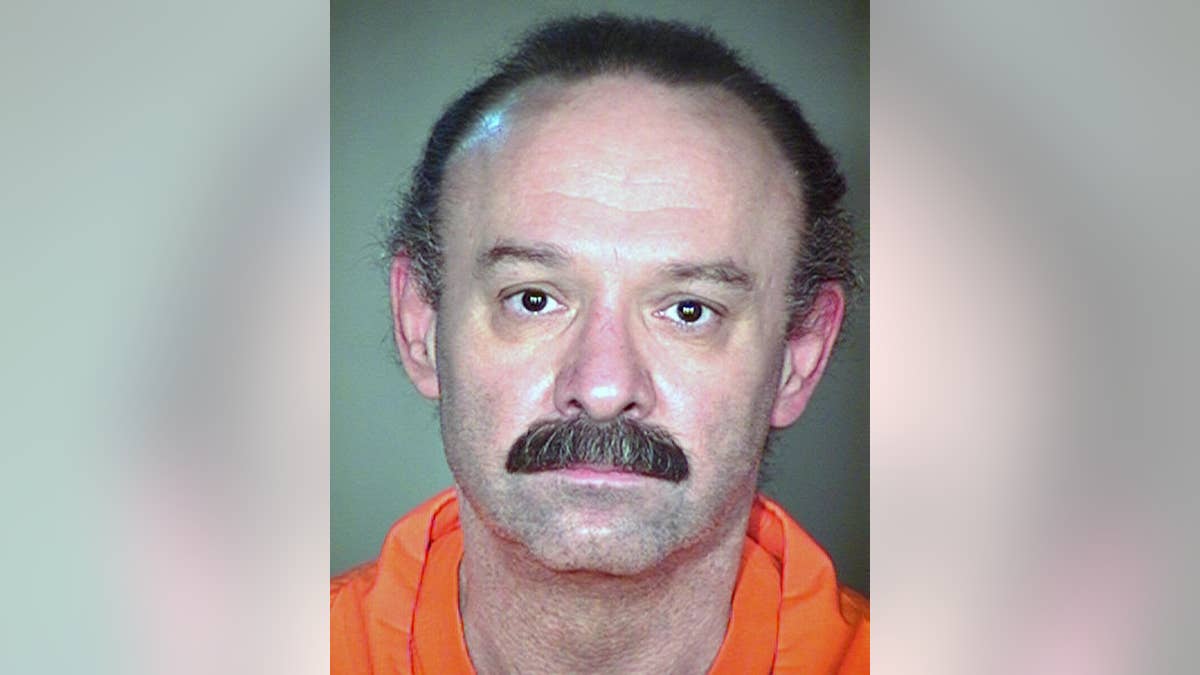
This undated booking photo provided by the Arizona Department of Corrections shows Joseph Wood. Executions in Arizona have been on hold since the 2014 death of convicted killer Wood, who was given 15 doses of the sedative midazolam and a painkiller and who took nearly two hours to die. Arizona has recently changed its death-penalty procedures by letting inmates seek the lethal-injection drugs that will be used in their executions. The new policy emerged in a lawsuit protesting the way Arizona carries out the death penalty.(Arizona Department of Corrections via AP) (The Associated Press)
PHOENIX – The recent revelation that condemned prisoners in Arizona can now provide the lethal drugs to be used in their executions has received attention around the world and raised questions about the state's rules for the death penalty.
The novel policy has drawn sneers from defense attorneys who were puzzled as to why the state would think that they would assist in killing their clients. It has inspired wisecracks about Arizona's penchant for taking on envelope-pushing criminal justice policies and left some readers on social media asking whether the bring-your-own-drugs policy was actually the product of a news parody website.
Criminal defense lawyers and death penalty experts say they have never heard of a state suggesting that condemned inmates can line up drugs to be used in their executions.
However unlikely it is that any of Arizona's 119 death-row inmates will take up the offer, the change is a reflection of the difficulties that Arizona, like other states, faces in finding execution drugs now that European pharmaceutical companies have blocked the use of their products for lethal injections.
Executions in Arizona have been on hold since the 2014 death of convicted killer Joseph Rudolph Wood, who was given 15 doses of the sedative midazolam and a painkiller and who took nearly two hours to die. The state will not be able to carry out executions until the resolution of a lawsuit that alleges Arizona has abused its discretion in the methods and amounts of drugs used in past executions.
___
WHY LET PRISONERS SEEK EXECUTION DRUGS?
The state hasn't publicly explained its aim in taking on the new policy, which surfaced last month in the lawsuit.
The Arizona Department of Corrections, which carries out executions, didn't respond to requests for comment. The Arizona Attorney General's Office, which is defending the state in the lawsuit, declined to comment.
Under the policy, the state's top prison official would be required, in one execution drug protocol, to use the barbiturate pentobarbital that's obtained by lawyers for inmates or someone acting on their behalf. The corrections director also would have the choice of picking one of two drug protocols involving the sodium pentothal if the barbiturate is obtained on behalf of a prisoner.
Douglas Berman, an Ohio State University law professor who has expertise in the death penalty, views the change as a pushback against the conditions that have made the drugs unavailable. "I think the idea is to say in the protocol, 'You guys want pentobarbital? Then get it. If you can get us the drugs, we'll use them,' " Berman said.
___
WILL THE POLICY WITHSTAND SCRUTINY?
No, said Dale Baich, an assistant federal public defender who represents the inmates in the lawsuit.
He explained that the policy is unfeasible because the Controlled Substances Act prohibits attorneys and inmates from getting the drugs. "As a lawyer, I just can't go to local Walgreens and pick up a couple of vials of pentobarbital," Baich said.
It's the responsibility of the state, not condemned prisoners, to carry out executions, Baich added.
The policy would seem to appeal to inmates who have abandoned their appeals and want to speed up their executions.
But Baich said the Controlled Substances Act would still prevent those prisoners from getting lethal-injection drugs.
Robert Dunham, executive director of the Death Penalty Information Center, which has been critical of the way executions are carried out in the United States, said the policy also raises ethical concerns.
Death-penalty lawyers are supposed to zealously represent their clients and have a duty not to take actions that harm them, Dunham said. "No one has done it before, and the fact that it is impossible, impractical, illegal and unethical may have something to do with that," he said.
___
WILL INMATES REALLY SEEK THEIR OWN EXECUTION DRUGS?
Timothy Agan, a longtime criminal defense lawyer in Phoenix who has handled several death penalty cases, said he can't imagine condemned prisoners lining up to seek their own execution drugs and couldn't foresee a situation in which the policy would be used.
He described his initial reaction to the policy by playing off a joke that comedian Jon Stewart made in summing up Arizona's reputation for antiestablishment, we'll-do-things-our-way approach to governing.
"I saw that and shook my head and thought, 'This is truly the meth lab of democracy,' " Agan said. "A truly crazy idea."
___
Follow Jacques Billeaud at twitter.com/jacquesbilleaud. His work can be found at https://www.apnews.com/search/jacques%20billeaud.








































